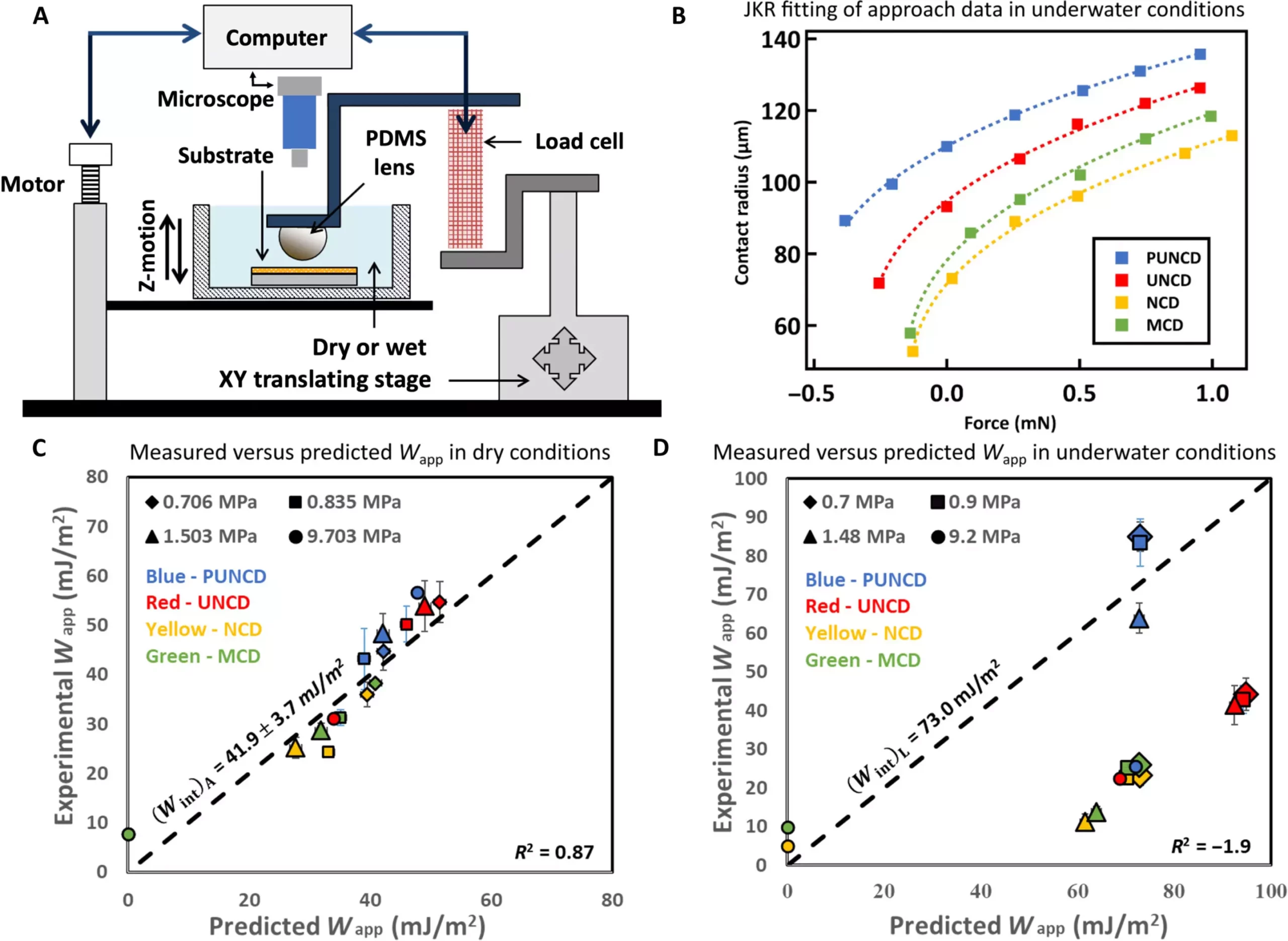In a groundbreaking study conducted by scientists at the University of Akron and the University of Pittsburgh, long-held assumptions about the role of water in adhesion have been overturned. The research, led by Dr. Ali Dhinojwala, has revealed that water can unexpectedly enhance adhesion under controlled conditions. The implications of this discovery are significant, particularly in biomedical applications such as bandages, health monitoring sensors for moist skin, and advanced adhesives that could replace sutures.
Traditionally, water has been viewed as a hindrance in achieving strong adhesion on wet, rough surfaces. It was believed that water disrupted molecular bonds necessary for effective adhesion, and tended to cling to surfaces and get trapped in surface roughness, complicating the adhesion process. However, the recent study by Dr. Dhinojwala’s team challenges this traditional view.
The Study
The team, including Dr. Tevis Jacobs, Dr. Lars Pastewka, and Dr. Anirudha Sumant, conducted experiments measuring the adhesion of a soft elastomer to precisely engineered rough surfaces. They found a complex interplay between water, surface roughness, and adhesion dynamics. Contrary to expectations, the presence of water initially disrupted adhesion by preventing molecular contact and increasing the energy required to deform the elastomer and conform to surface roughness.
Despite the initial disruption in adhesion caused by water, the study found that the presence of water actually increased adhesion by nearly four times during detachment. This surprising result was attributed to the fact that water was trapped in nanometer-sized pockets, making it harder to pull the surfaces apart. The team developed models and conducted simulations to understand the mechanisms behind this phenomenon.
Implications and Future Research
Dr. Dhinojwala and his team believe that by understanding how water interacts with surface topography, they can potentially harness roughness to enhance adhesion. This has significant implications for industries worth billions of dollars globally, as well as for the development of new technologies in adhesion science. The team plans to further refine their findings and develop practical applications that capitalize on the surprising benefits of water in adhesion.
The study by Dr. Dhinojwala and his team has challenged long-held assumptions about the role of water in adhesion science. Their research has shown that water can have unexpected benefits in enhancing adhesion under controlled conditions, opening up new possibilities for applications in various industries. The team’s future research will focus on refining these findings and developing practical solutions to leverage the surprising benefits of water in adhesion science.


Leave a Reply